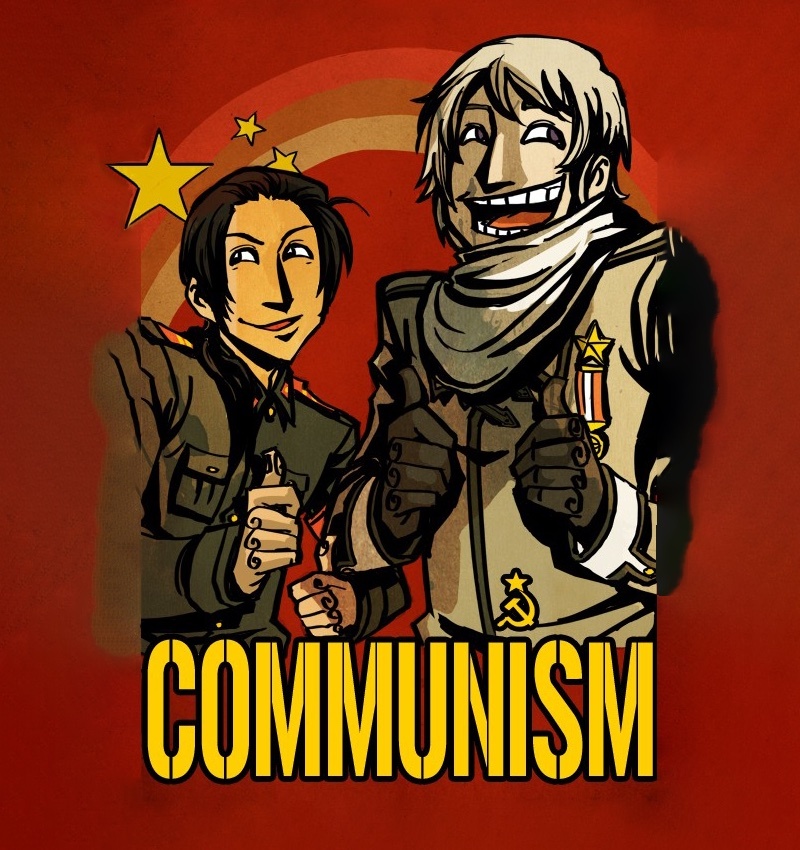I’ve recently read"The Verge: Reformation, Renaissance, and Forty Years that Shook the World" and want to hear what all of you think the answer is, because I feel like the book was missing something in its thesis and I am not very sure what that is.
Trade. Specifically, trade overseas (sea transport is much faster than land transport to the point of qualitative difference) allowed by long-distance ships. This seems to have had dramatic effects from very early on centred around the Mediterranean (e.g. Bronze age, Hellenic world, Rome, etc for more detail see Broodbank’s The Making of the Middle Sea). The secret to merchants’ capital and hence merchants’ power is found in ch5 of Kapital:
The form of circulation within which money is transformed into capital contradicts all the previously developed laws bearing on the nature of commodities, value, money and even circulation itself. What distinguishes this form from that of the simple circulation of commodities is the inverted order of succession of the two antithetical processes, sale and purchase. How can this purely formal distinction change the nature of these processes, as if by magic?
But that is not all. This inversion has no existence for two of the three persons who transact business together. As a capitalist, I buy commodities from A and sell them again to B… [A&B] step forth only as buyers or sellers of commodities. I myself confront them each time as a mere owner of either money or commodities, as a buyer or a seller, and what is more, in both sets of transactions I confront A only as a buyer and B only as a seller. I confront the one only as money, the other only as commodities, but neither of them as capital or a capitalist, or a representative of anything more than money or commodities, or of anything which might produce any effect beyond that produced by money or commodities.(258)
Even in the relatively even playing field of the Mediterranean, this creates the ability of one party, the capitalist, to hold an overwhelming advantage of knowledge of (closer to) the entire process of exchange, instead of one part. In addition, this creates impetus to find new sources of valuable materials (a source of relative surplus value) spurring expansion. These twin impulses help drive and enable early European expansion. The next key to super-imperialism lies in the medieval monasteries.
Moving quickly (for more detail; Landes The Invention of Time and parts of Crosby The Measure of Reality), medieval monks became very fixated on routine, schedule, fixed times unchanged by the movement of the sun, etc. This made them efficient workers, and it spread into the cities. This conception of time (time composed of homogenous, discrete units instead of heterogenous, continous movement) is a necessary precondition for the existence of the capitalist mode of production, but here we are interested in its relationship to the construction of the modern escapement clock (as opposed to e.g. water clocks, sun-dials, etc).
Modern clocks (basically the kind where time is measured by discrete intervals of sounds; the tick) arise from this conception of time, as a way to create clocks that are more consistent. At first, a main goal of such clocks was to regulate monastery life better; it spread to cities and burghers from there. At this point, we are at the pendulum clocks, and these serve well for use on land. However, the clock has applications for navigation.
In sea navigation you wanna know how far North/South you are (latitude) and how far East/West (longitude). Latitude is much easier to find to an accurate degree than longitude, so it was a major limiting factor in naval navigation. The pendulum clock allowed for much more accurate longitudinal readings, but pendulums do not work at sea. Even more complicated, smaller, mechanical clocks were needed, and they were created. This allowed Europe to reinforce its naval navigation advantage regarding trade.
From 1492 and even earlier, the ships developed through mass trade in the mediterranean saw Europe become a global middleman, buying (or stealing) goods in places where they were common and selling them in places where they were rarer. This was ultimately the source of European wealth and power, as they enjoyed a collective near monopoly on (direct) intercontinental trade, flow of information and military movement.
Europe’s dependence on those ships gave it impetus to develop more intricate clocks and ships, and the wealth flowing into Europe gave it the means. As Europe shifted more towards exporting manufactured goods, this created impetus for methods to rapidly produce tons of shit. As manufacture turned into industry (meaning; as the machine was invented and the human turned into a mere motive power and machine-minder), a more controllable motive power was needed, and coincidentally existed in large quantities in the centre of manufacture (Britain).
The information gap also makes resistance, or even intention to resist more difficult:
The circulation of commodities differs from the direct exchange of products not only in form, but in its essence. We have only to consider the course of events. The weaver has undoubtedly exchanged his linen for a Bible, his own commodity for someone else’s. But this phenomenon is only true for him. The Biblepusher, who prefers a warming drink to cold sheets, had no intention of exchanging linen for his Bible; the weaver did not know that wheat had been exchanged for his linen. B’s commodity replaces that of A, but A and B do not mutually exchange their commodities…We see here, on the one hand, how the exchange of commodities breaks through all the individual and local limitations of the direct exchange of products, and develops the metabolic process of human labour. On the other hand, there develops a whole network of social connections of natural origin, entirely beyond the control of the human agents. (208)
…
Since money does not reveal what has been transformed into it, everything, commodity or not, is convertible into money. Everything becomes saleable and purchaseable. Circulation becomes the great social retort into which everything is thrown, to come out again as the money crystal.(229)
Conditions of production (e.g. extraordinarily brutal slavery, unprecendented ecocide, etc) are similarly in “the hidden abode of production on whose threshold there hangs the notice ‘No admittance except on business’”(279-80), so for example while someone might reject trading furs for alcohol if they knew the alcohol was made with horrific slave labour, the conditions of international trade kept most knowledge in European hands. Without being aware of the conditions of oppression, without lines of communication, without immediate knowledge of the Europeans’ goals, etc, co-ordinated defence against Europe is difficult.
You should write a book. I’m not kidding. You packed like an entire semester of knowledge into that comment and made it easy to read. That’s a talent.
Thank for the in-depth response that made things click into place.
Thanks!
Why did Europe come to dominate sea trade?
Mediterranean to start with. It’s huge and relatively calm to sail on, so lotsa trade, meaning lots of practice (and profit) in improving those trading ships. Rome took this to new (horrific) heights; mass (slave) produced, standardised pottery from North Africa can be found across the entire empire, from Jerusalem to London. Rome’s power (and wealth) was built on this slave labour (both in factories and in villas and in boats).
Rome’s collapse slowed the marketization and decreased the scale, but on the whole by this point, such methods of transport and trade had reached the northern coast of Europe, which has a similarly large, but less calm sea. Traders here needed more navigatory techniques, and of course traders going all the way around Iberia, the sea route connecting these two seas, requires naval expertise.
Europe’s polities are tiny and constantly fighting, in need of cash to pay armies (increasingly, mercenary armies). Merchants are hence supported, sponsered, etc. From here, see my points about the clock and navigatory technology above.
i’ve never heard that roman pottery production was a slave enterprise. i mean it’s roman so there’s bound to be some but i hadn’t read it like as a defining characteristic, like quarries, galleys, or latifundia. what’s the source?
Mostly going off of Jones’ 2 volume work on the later empire. Slavery basically permeates every pore of Roman society, especially in production.
that all makes sense, but why did this “warring states funded by seafaring mercantilism and finance” dynamic not develop to the same degree in north africa or the levant, which were also in rome’s footprint?
was it a lack of good trees for building long-distance ships? was it that europe just has more coastline? was it the mountains of europe making it easier for there to be multiple states that never conquer each other?
the Ottomans conquered it while european capitalism was in vitro. they’d made a classic centralized empire, which was much better than the europeans & southern medd at the time (though the Mamluks were fairly sophisticated, they just lost the wars).
i’d argue that a centralized imperial system was more sensible, stable, and successful (until the 1700s-1800s) than the increasing role of burghers and capital in the european systems, unless you had the foresight to know the outrageous failures of the business cycle have a progressive motion of accumulation beneath them that would eventually grow to heights that surpassed an efficient pre-capitalist tax assessment system.
I’m still not sure. As @[email protected] says it likely had something to do with islamic conquest (not Ottoman though; the split occurred before then). It was against religious law for Sunni muslims to live outside of the House of Islam or to trade with the christians (this rule was of course violated), and their economic and administrative systems took very seperate courses from very early on. Sadly I havent done investigation into exactly what these differences were etc so cannot speak to them beyond generalities such as more centralisation. Deforestation is a strong possibility and definitely a factor, but without more research its hard to know how much
However, drawing on Jones’ work on the collapse of Rome, its clear that this divergence between East and West predated the rise of Islam. The trade economy of the West was never as robust as the East, and when it lost imperial trade connections, it collapsed hard, much harder than the East.
In the Eastern empire existing admin anf economic structures were taken over and only slightly altered, existing groups, peasant or aristocrat, taxed. In the West otoh, Rome’s settler-colonial policies saw mass settlement of retired soldiers with slaves (from conquests) for farm work. Slaves therefore featured more heavily in the western empire, and as the Western empire fell they rose slightly, to become protoserfs, whereas the remaining free farmers fell into protoserfdom.
These slave-owning small farmers were firmly tied to and dependent on Roman markets for many necessary commodities. As one example, some parts of the empire (e.g. Britain) native-made pottery disappears from the Archaeological record in favour of those imported. As a result, following the collapse, britons had to relearn the ability to make pots from the ground up.
i think you’re overstating the difference from the eastern med and the western, sometimes the muslim states had periods of centralization, but just as often were devolved to fractious feudatories. the decline in urbanization and production from roman levels also hit the east, just belatedly, and their ceiling being much higher–the decline less dramatic.
Western and northern Europe had been flooded with German nomads so kingdoms were constantly being carved out and borders were in constant flux. Also in the western roman empire, the pope ruled over Caesar, unlike in the east where it was Ceasar over the pope. This meant these new German kings were constantly jostling for the title of holy roman emperor and back stabbing whoever got it.
Baltic sea ship building (viking) mixing with Mediterranean ship building led to caravel built ships. The Arabs were just as capable seafaring merchants as the Europeans. But they didn’t have systems to finance expeditions around Africa to fuck with Christians like the Portuguese would with them.
Very very broadly speaking, cause the eastern Roman empire lasted much much longer and controlled those regions.
This is not the reason but a key reason: Baltic rough sea ship building tech met Mediterranean large scale ship building tech via the vikings. Outcome is caravel hulls. Strap cannons on and now your ship is the naval equivalent of a nomadic horse archer army. You can hit anything with cannons and just retreat to blue waters before anyone could hit back.
Mediterranean ship building was built for scale but mostly joined large blocks of light wood together using mortoise and tenons. This meant ships could be large but were also brittle. Rough seas would snap the boat. But there were still large enough that people could put cannons on them as soon as small cannons were a thing.
In the Baltic, the seas are always rough. So shipbuilders used thin overlapping strips of heavy wood, which were nailed together, called “Clinker built”. These thin strips of wood could twist and flex in rough seas so your ship wouldn’t break. But you could only build ships so big in this style. Viking long ships could never fit a cannon.
Were viking traders first met Mediterranean shipping would’ve been around the Iberian peninsula. So its little wonder that the Spanish and Portuguese were the first intercontinental European empires. The Portuguese were considered the “first” though. And were far more Naval based than the Spanish. Once they got into the Indian ocean they became sea Mongols because they could strike anyone with impunity, claiming dominion over the entire indian ocean. Check out Afonso De Albuquerque for Portuguese exploits in the Indian ocean.
answer: forestry map of India China North America and South America
anything that happened in ancient greece/rome is basically irrelevant

Way to answer a broad question with really detailed answers quite succinctly. I was trying to figure out how to get basically this across without getting really bogged down in detail. Ya nailed it
This deserves its own post at /c/effort
Thank you comrade

Incredible post, thank you!
Excellent. This belongs on the Marxism comm as a means of helping people understand elements of Kapital relating the exchange of commodities.
so until the 1800s the Europeans were not actually militarily advantaged over asia/the middle east. 1500s-1700s it was always a pretty close run affair, and the imperial outposts relatively small. european naval vessels were relatively well-armed and nice, but other nations weren’t unable to field reasonable equivalents. this early period of colonial conquests were fueled mostly by the looting of america, small-on-the-map european countries could outspend you, even if their soldiers weren’t much better armed. i’m not counting america because it’s really difficult to win wars against smallpox
but once the europeans have the steamship its joever. motherfuckers moving against the wind, faster than any boats before slipping troops places and bombarding shit nobody thought possible with blinding speed. from a european perspective, seeing the steady progression and failings it’s a bit less dramatic, but for an asian nation one day the barbarians showed up with these things in a world that only knows wind and oar power. and the engineering to make your own relies on a bunch of ground-based shit you don’t have yet either
as to why europeans got the steamship, that’s from the development of capitalism and the looting of america
A large part of the British conquest of India was accomplished prior to the launch of the first sea-going steamships, by frequently heavily outnumbered armies (even accounting for local auxiliaries).
Divide and conquer played a large part, but also the social & financial institutions built in the West to outfit and keep a unified presence in India that was not vulnerable to its own tactics.
90% of the British army was also made up of Indian soldiers before they colonized India
bc the brits were rich
Thank you for that perspective, I didn’t realize steampower was that dramatic, but you framed it well.
even in the first opium war a british and qing infantryman were relatively the same technologically, both just dudes with muskets (the Qing military was really declining at the time and their best troops were on the borders, which is why they sucked in the actual engagements), but the steamers ran roughshod over the navy & supported the infantry, which didn’t operate very far away from shore.
That’s fascinating, is there a book you read in particular that covered this well?
lol almost all the Qing stuff i’ve read is from the resident Qing-head on askhistorians. it’s not a particular interest of mine, but here’s a thread they did on the opium war with a meaty bibliography
A Reddit link was detected in your comment. Here are links to the same location on Teddit and Libreddit, which are Reddit frontends that protect your privacy.
🤖 🔥

What a good bot
Steam power is insane outside of boating. Before all the work in your society must come from potential energy stored in food. After steam you could get free work out of rocks.
i hate to be a pedant but wind and water were also good power sources prior to steam
True but they couldn’t scale on-demand as steam can. Still can’t, but energy storage is the solution now.
Europe had a host of material conditions that led it to this position. It is relatively resource poor, and was constantly strapped for hard currency because the trade routes with the rest of the known world were mostly one way: Chinese people didn’t want a wool shirt from England, but English lords wanted silk and spices and porcelain.
This led to robust and relatively stable networks of credit that allowed nobles to engage in increasingly sophisticated and expensive versions of war and exploitation because they had to in order to keep up with their neighbor, who was trying to do the same thing. Because they were always in debt they had to keep doing more expensive things to secure more resources to pay back creditors, and build institutions to manage their money and regulate finance to keep everything from collapsing.
Eventually some landlords on an island found themselves in a new social relation to their tenants, where it was in their best interest to let them make their own living somewhere else instead of farming, and charging rent instead of feudal dues. This put everyone else on the same track or they risked being priced out of their lands and titles by a new class using a new form of socialized labor.
Essentially Europeans had to compensate for their economic disadvantages in ways that drove them to invent systems that created more productive capacity extremely quickly. I got most of this from The Origin of Capitalism, Graeber’s book on Debt, The Verge and Hell on Earth. But that’s my elevator pitch when I talk to people about this.
Edit: Since you read the Verge I’ll just add, I think it’s missing class analysis, it is looking at a set of economic structures and observing that they tend in a direction without tying it to social relations of production. I heartily recommend Wood’s The Origin of Capitalism on that point specifically.
relatively resource poor
don’t they have good agricultural land?
I mean compared to some places, sure. But agricultural products aren’t gonna buy you a fancy ivory cane from a merchant who sailed here from Istanbul with exotic wares. They want something they can get valuable goods with, not grain. The Arab traders in Istanbul can get grain from the next village. You need something they want, or precious metals if you don’t have anything else.
Which isn’t to say you can’t build a good population off of good land, it’s just that “a nice place to live” isn’t necessarily “a rich place in international trade”.
true, but wouldn’t good agricultural land mean more people can live in urban centers?
It can help, but I would argue that cities don’t cause this sort of change on their own. After all, many of the largest most dense cities in the world were in India, China and Central Asia/North Africa for a lot of the time that Europe took off.
That did happen eventually but for the pre mercantile period we’re talking about it’s either due to being a frontier colony for the romans or afterward quite decentralized in power from a regional perspective. Less central control meant smaller scale public works and lesser development of urban centres and the pre existing ones were beginning to fall to shambles due to lack of maintenance from a building and infrastructure perspective and disease from a human perspective leading to urban centres being generally abandoned fornthe countryside. Urban life in Rome and similar cities was pretty ass and without a strong central government making sure slaves kept the food coming in and maintaining the structure necessary to keep an urban area going, it was basically leave or die. This led to central and western Europe having a more disperse population with less centralized control and greater regional power than before. Urban centres weren’t really built by the romans in Northern central and wesrern Europe and in the middle ages there wasn’t really much material reason to try to build new ones of equal scale and power dynamics were often a bit too chaotic to do so.
Thanks for the bibliography, I’ll check out the rest of the stuff in there.
A theme that keeps seeming to come up is luxury goods. Do you think it would be fair to say Europe is rich in useful goods (iron, wood) and poor in everything else? If Europe was truly that poor it wouldn’t be able to actually conquer anyone. Unless I’m mistaken on how poor is meant.
Is debt a good first Graeber? I really should read him soon. He keeps coming up.
A theme that keeps seeming to come up is luxury goods. Do you think it would be fair to say Europe is rich in useful goods (iron, wood) and poor in everything else? If Europe was truly that poor it wouldn’t be able to actually conquer anyone. Unless I’m mistaken on how poor is meant.
Well in the context of international trade it was poor. Iron is all over the place, trees are pretty common. Europe had nothing other places couldn’t get for themselves, and a strong incentive to develop a method for getting things it wanted by a means other than exchanging precious metals for them.
I think Debt is the first of his books I read, I think it’s a good one, approachable and also concrete. Would recommend.
So the shipbuilding was purely an incentive structure thing?
As for iron, it varies so much in what a particular deposit is good for… I should have specified that it’s actually good iron that doesn’t need the katana treatment to make a solid sword. Unless that’s a myth and I’m dumb. The point of this post was to learn lol.
What’s required to produce those things at a scale that matters is a transformation of social relations that frees up a bunch of people and forces them to do new, alienating work. It’s not enough to have good techniques, you need to fill a nasty city with people who have to be there using them to make a hundred new ships a year.
As with your katana example, technology was not unique to Europe. Many of the things they ended up using to dominate the world came from China, the Arab world, etc. But they had incentives to escalate the use of expensive technology and a social base that was suddenly uprooted by a new form of market relations that killed the previous ways people met their needs.
Economies are, at their core, a social phenomenon, not a technological or resource system. So I wouldn’t discount technology and such as contributors but I don’t think they are the main cause of the transformation Europe experienced.
THANK YOU.
you made so much stuff click with that explanation. Genuinely good at teaching, you are,
That means a lot. Thanks. I’m glad it made sense.
I recommend How europe underdeveloped africa by Walter Rodney if you want to learn more on the topic. In short the answer is that the power came from the development of capitalism in europe.
White supremacists when I ask them that if white people are the master race, why did they need to sabotage everyone else to make themselves look good?

World Systems Theorists have some interesting takes on this. In particular, Giovanni Arrighi’s The Long Twentieth Centrury lays out an interesting theory about how the nexus of hegemonic power shifts geographically and temporally through the rise of capitalism to an epochal “signal crisis” and through its financial sublimation leading to a “terminal crisis”. It takes an absurdly long durée view, tracing the development of capitalism from the Italian city states of Florance, Venice, and Genoa, through the Dutch, England, and finally to the US, examining this cycle of accumulation and crisis in each case as the mechanism which drives these tectonic shifts in hegemony.
World Systems Theorists aren’t strictly Marxist, but they aren’t allergic either and do cite a lot of Marxist sources.
Terrance Ray and Sean K.B. gave a pretty good summary of the book in a dusty old podcast episode: https://soundcloud.com/user-972848621-463073718/year-zero-the-thousand-year-stare-w-special-guest-sean-kb
Thank you, that book sounds really interesting.
I like how the “shifting of capitals…capital” sort of uses material anaylysis to deflate the story the west tells itself about “Greeks, Roman’s, anglos/french, Americans” (depending on who does the telling)
I also highly recommend Palo Alto by Malcolm Harris, as it goes into great detail about the history of the settlement of California in the 1800s and the roll it played in accelerating indigenous genocide and capitalist accumulation, and continues to do so to this day in the form of Silicon Valley.
Thanks for the link to the podcast episode, I’ll give that a listen.
I think people shouldn’t underestimate the Mongol invasions had which China had to recover from and which the Islamic Golden Age was brought to an end. If it weren’t for the Mongols, capitalism would most likely have started in Southern Song instead of Western Europe. Southern Song already invented paper currency, and in general, was already transitioning away from feudalism through the Industrious Revolution. And keep in mind, this was China having to face the full onslaught of the Mongol invasion, which Western Europe was completely shielded from. Now imagine if China never had to suffer through massive depopulation and infrastructural damage. Likewise, the Black Death was also the catalysis that brought the downfall of feudalism in Western Europe. Massive amount of death gave labor more bargaining power since the supply of labor was greatly diminished. It also forced people to question feudalism as a political ideology.
In an alt-history where the Mongol invasions didn’t snowball like the way it did (maybe alt-history Genghis Khan was assassinated before he could unify the Mongols) and the Black Death never happened, Europe could very well just be a backwaters part of Asia still stuck with feudalism while China or India have a capitalist (or completely novel) mode of production which allows them to build colonial empires in Africa and the Americas (I think Chinese and Indian ships already were able to sail to those continents and this would certainly be true for alt-history Chinese and Indian ships).
even the most optimistic estimates for Song population were met and surpassed by the Ming. and the view that Mongols just came in and killed everybody & burned everything is bizarre. they conquered, but every dynastic transition in China was ultraviolent, the Song did it, the Tang did it, the Ming did it. afterward the Yuan proved just as capable of governance and maintenance of infrastructure as their predecessors. for all the talk about Southern Song’s pre-proto-industrialism no one ever seems to appreciate it was lashed to a decrepit state that couldn’t even control all of China. bully to your paper money, page me when you can defeat the Jin.
but also have you heard of the Qing? with your scapegoating of the Mongols the Qing defy explanation. oh yeah the developmentally disadvantaged-from-1200 chinese just accidentally conquered the largest ever chinese state, including the mongolian steppe, a military success unheard of since the Han dynasty?
Right, my point is Ming and Qing had surpassed Southern Song despite the Mongols. I wouldn’t say Yuan was some great Chinese dynasty on par with Han, Tang, Song, or Ming. It lasted less than a century, which is subpar for a Chinese dynasty. The lasting contribution of Yuan was the idea that you don’t have to be Han to be Chinese, which was further developed by the Qing since both Yuan and Qing were conquest dynasties.
And as a final note, capitalism could’ve also started in Mughal India instead of Western Europe or China. I don’t think it was destined for capitalism to first come out of Western Europe. There were various candidates (Western Europe, China, India) and various historical events would eventually tilt the weight in favor of one candidate.
You’re applying a Han-centric view of the Mongol conquests. The Mongol Conquests resulted in the complete extinction of the Tangut and Khitan in the North, as well as the complete loss of the Jurchen script. These were major cultures in pre-Yuan China. This is equivalent to say Koreans or Tibetans going extinct. No other dynastic change has resulted in the complete extinction of multiple cultures like this except maybe the conquest of Chu, but even then the Chu were broadly culturally similar to the other warring states.
now you’re gonna make me defend the Mongols? they didn’t extinct either people, the Khitan were already on the decline and subject under the Jin. and the Western Liao were literally a dozen families, that were taken over by the Naiman Kuchlug when Genghis went over there.
e: and i may have been thinking of the Jin’s Khitan contingent but i really thought there was also a Yuan Khitan guard unit too. besides, the Eastern Liao were a close ally and afterward vassal of the Mongols, i have no idea where you got the impression of a mongol effort to eliminate them. they were mongolic cousins and just assimilated
Tangut got fucked, but still were around after the fact, getting mentioned in mongol armies.
but the Jurchen script was just based on chinese and they switched it out for mongolian based i dont think thats a huge thing
but the Jurchen script was just based on chinese and they switched it out for mongolian based i dont think thats a huge thing
It was an entirely different writing system based off of Chinese and Khitan. Its relationship with Chinese is more analogous to the Cherokee script’s relationship with the Latin alphabet. Plus I don’t think it’s “not a huge thing” considering imo this is why the Manchu language today is near extinct. Imagine how European history would’ve turned out if every major Germanic culture was suddenly wiped out or had all their writing destroyed.
we’re literally communicating in germanic rendered with the latin alphabet right now, not the alphabet the germans used. that’s all that happened with jurchen/manchu, its marginalization doesn’t have to do with its script (and it could be rendered in others if people were inclined) but the abandonment of it by the manchu themselves as the ruling caste of Qing, and also the reactionary anti-manchu policies of the early Republic
E: but yeah ‘chinese’ isn’t the appropriate term for that first jurchen writing system, it just shared the common ancestor of the chinese and khitan.
Well yeah. imagine if in the middle of the Renaissance, when Northern Europe finally approached the level of societal development as Southern Europe, a nomadic group of Germanics suddenly came and assimilated/killed off most Germanic cultures. All works written in the Latin alphabet are lost, no Shakespeare, Martin Luther or Chaucer. The Germanic languages that do survive now use a form of neo-hieroglyphic completely incompatible with the previous written corpus. It would be a tremendous loss of culture.
I admit this isn’t much of a material analysis. I’m just lamenting the loss of all these scripts. But changing writing systems isn’t a casual affair, especially in the premodern world where document preservation is difficult and you’re not going to have people sit down and transliterate every old book they come across. One contributing factor to the decline of the Manchu language is the lack of a corpus. Most texts were merely translations from Chinese. If the pre-mongol Jurchen corpus had survived I doubt the Qing nobility would’ve abandoned Manchu as readily.
it just shared the common ancestor of the chinese and khitan.
Well not really. The Khitan Large script was explicitly created in the Liao dynasty based off the principles of Chinese (which at this point was already identical to modern day Chinese), a second semi-phonetic Small script was then created based off of that and old Uyghur, while the Jurchens used a script based off borrowings from both Chinese, the Khitan Large scrript, and possibly the Khitan small script.
now use a form of neo-hieroglyphic
okay mongolian used sogdian, a very successful and not unsophisticated system. i’m not of the opinion writing systems inherently advantage/disadvantage a language on their own. prominence of languages is political.
I’m just lamenting the loss of all these scripts
i mean no problem with that, but i don’t see how the Jurchens are that special or how whatever documents might’ve burned in Zhongdu couldve saved the manchu language 8 centuries afterward
Friend your citation is to a book chapter which mentions the author’s previous work on the industrious revolution…in the early modern (i.e. Ming) period. It does not say what you want it to say.
Large, centralised, powerful states inhibit the expansion of mercantile power. Historically (cf. Aglietta & Bai China’s Development: Capitalism and Empire) the Chinese states would break up concentrations of merchant power.
Also to add to what Dolores said about Qing, I wanna point out that it (and Ming, etc) had superior famine relief and general peasant living standards. To quote Davis’s Late Victorian Holocausts: “In Europe’s Age of Reason [c.1700] the “starving masses” were French, Irish and Calabrian, not Chinese”.
Capitalism’s development is things going wrong. What we have today is the result of class struggle (paricularly around the mediterranean) ending in “common ruin of the contending classes”(Manifesto p.1) at best, triumph of the oppressing class at worst, repeatedly, for millennia. It is not a system that develops when a society is healthy or flourishing.
This whole idea that a Chinese Empire would engage in European style colonial policies is absurd, because we have historical examples of what Chinese expansion looks like; generally a slower (but still bad, brutal etc) encroching process with tribute taken as personal gifts for the emperor / court (here I am drawing primarily on Ye’s The Colonisation and Settlement of Taiwan and Walker’s The Conquest of Ainu Land). Native autonomy maintained often by military action from above against local officials. That the tribute is generally restricted to articles for use rather than exchange means “no boundless thirst for surplus labour will arise” (Kapital p.345), hence no boundless, rapacious growth. This sorta tribute (and de jure acknowledgement of Chinese supremacy) came from places as distant as Southeast Asia, East Africa and Hokkaido.
The two big waves of (again, still brutal, traumatic etc) migration of mainland Chinese to Taiwan during imperial era was during one of the medieval dynasty transitions, when the loser fled to Taiwan, and in the mid 1800s, when China was trying to prove that it was being a “real” empire and “civilizing” the area.
Definitely making a note of those books I’ve been reading about the tributary mode of production outside & predating european feudalism
This whole idea that a Chinese Empire would engage in European style colonial policies is absurd, because we have historical examples of what Chinese expansion looks like; generally a slower (but still bad, brutal etc) encroching process with tribute taken as personal gifts for the emperor / court (here I am drawing primarily on Ye’s The Colonisation and Settlement of Taiwan and Walker’s The Conquest of Ainu Land). Native autonomy maintained often by military action from above against local officials. That the tribute is generally restricted to articles for use rather than exchange means “no boundless thirst for surplus labour will arise” (Kapital p.345), hence no boundless, rapacious growth. This sorta tribute (and de jure acknowledgement of Chinese supremacy) came from places as distant as Southeast Asia, East Africa and Hokkaido.
The difference between Western and Chinese territorial expansionism isn’t that different, especially when you compare the complete conquest and destruction of the Dzungar Khanate wrought by the Qing. Fundamentally, the territories of feudal polities were constrained by how long it would take to travel from the frontier to the central government. There’s no reason to think that a feudal polity wouldn’t further expand if they had less constraints such as the adoption of faster transportation. Yes, the tributary system existed, but the empire proper also saw overall expansion and incorporation of tributary relationships and de jure rule into de facto rule as well. You can see this with Nanzhong/Dali where it oscillated between being a frontier of the empire with almost no de facto rule and a tributary state before being incorporated into the empire proper during the Yuan. Chinese expansionism also wasn’t just through the Asian interior either since Kublai Khan tried but failed to conquer Indonesia and Japan. Now, if you’re talking about settler-colonialism where European powers conspired to ethnically cleanse the Indigenous population in the Americas in order to steal their land and replace their population with European settlers not indigenous to the land, then yes, I don’t see even alt-history China doing that.
Overall, my initial comment in this thread is pushing back the idea that:
-
Capitalism was destined to develop in Western Europe when there were multiple candidates. The two candidates I could see were China and India. Perhaps there were others as well.
-
Capitalism was passively developed through material conditions which saw its birth as inevitable and not brought forth into existence through human activity. It was developed through human activity, and I don’t just mean things like primitive accumulation, but that the preconditions of capitalism’s arrival themselves were also brought forth through human activity.
Combining the two would mean that beyond just pointing out the advantageous material conditions of Western Europe, you would have to point to key historical events which pushed the origins of capitalism in Western Europe’s favor. Now if you want to argue that the Industrious Revolution as experienced in China and India would lead to a completely new mode of production that was neither feudalism nor capitalism (nor socialism), that’s fair. But you would have to show how this new mode of production is distinct from capitalism.
To explore your tangent a little more, I’d say that Western and Chinese territorial expansionism is more different than alike, precisely for the examples you’ve cited.
Viewing cultures in reductive civilizational cliches is not a rigorous mode of analysis, but it is worth drawing a few points from. The Qing and Yuan phases of expansion are in direct contrast with the remarkable lack of relative expansion under the so-called “Han Chinese” dynasties. Those two dynasties were established under conquest and actively contextualized their reign as one of triumphal subjugation over the general population and majority culture. Operating under that mode of cultural belief allows a more assertive geopolitical posture compared to the more passive foreign policy philosophies of the “traditional” dynasties.
The example of the Imjin War between Ming China and Korea vs Japan is a good example, because it establishes the stakes involved in clarifying this. Some scholars in South Korea (though not the consensus view, as far as I’m aware) who operate from an adversarial basis towards the entire Chinese presence in Korean history see the war as a fight for Korea’s independence against not just Japan, but also Korea’s Ming ally, who “actually wanted to annex Korea while they were there supporting Korea.” Thus, Korea fought off not just Japan’s hard takeover but also the Ming “soft takeover.” K.M Swope’s “A Dragon’s Head and a Serpent’s Tail: Ming China and the First Great East Asian War, 1592-1598” shows how this view is completely unfactual. The Ming were certainly frustrated at the military inefficiency of lacking direct control in Korea while conducting the defence against Japan, but they were never interested in annexing Korea as a result of this.
The real reason for this allegation is that those scholars simply aren’t capable, through their Hobbesian cynicism, of conceiving a foreign policy relationship that isn’t based on an agenda of conquest and eventual annexation in the style of European imperialism. As such, they see shadows of European settler-colonialism everywhere in history, even when the evidence isn’t there. By this, their motive is to essentially whitewash the genocidal European mentality that brought about the past 500 years of global trauma by saying that “Europe just simply got to it first, everyone else would have done it as well in the same position.”
I call this the “You would have been a Holocaust supporter if you lived in Nazi Germany” cultural relativism-fetishist argument you used to see all the time on Reddit, which forgets through its assumption that, no, not everyone is a hetero-normative White Christian and most people in the world would have been thrown into the camps if they were somehow transported to Nazi Germany.
Nevertheless, a rejection of that mode of conduct is how China historically behaved by-and-large under the “traditional” dynasties and how modern China aims to be.
I would add that through this, the parallels between the “Ming takeover” allegation and the modern propaganda against China’s BRI could not be more plain. The argumentation is basically the same. “Sure, those countries may be right to resist the Western/IMF neocolonialist ‘hard takeovers,’ but they also have to watch out for China’s aid ‘soft takeovers’ too.”
-
Capitalism began in England during the enclosures. That’s how.
Availability of work animals gave much of Eurasia a significant edge compared to Africa (which generally only had access to them through Eurasia).
Idk how this applies to the Americas.
The americas had jack shit for work animals but thats sort of a guns germs and steel explanation. China had all the same materials and Europe and didn’t go off to pillage the world.
As others have mentioned in this thread, China had the potential to be the birthplace of capitalism but got slowed down by other factors like the Mongol Empire.
China would have to be in a permanent waring states period for centuries to develop the debt systems necessary to start capitalism. It had all the resources but none of the motivation. The Mongol Empire had little to do with that, unless you meant “returning China to dynastic rule”. Honestly that theory just sounds like chinese nationalist cope.
fair enough (I did not mean due to dynastic rule)
None of the Chinese dynasties could ever get away with something like the Enclosure Act in England. Any attempt would’ve resulted in dynastic overthrow. Plus the economic collapse of the Ming dynasty caused by silver inflation from Spain’s colonization of the New World did far more damage than the Mongol Conquests.
also no work animals, most crops weren’t great for massive-scale farming.
Corn and potatoes are notoriously great for large scale farming. Or are you talking about African yams?
that’s two. farming caught on in those regions where those plants were grown on a decent scale. Most other farming was small scale.
You said there were no crops for massive scale farming yet we do massive scale farming with american crops. Also corn was grown at some scale all along the Mississippi and the deep south, thats how you get Cahokia. It wasnt just limited to Mexico.
The fact that those crops weren’t used at such large scale as the Europeans is due to the societal structures of the Americans not the lack of capable plants. Europeans enclosed the commons and privatized land ownership, the Americans didn’t. It has nothing to do with the lack of correct plants.
I wanted to chime in with trade and lack of ressources, but they also got really really good at plundering due to the political system of feudalism (whose need for currency to fuel more wars also gave rise to credit systems)
Damn, I’m beginning to tbh k I was wrong. Because almost everyone is pointing at debt systems as the cause. I really need to read “debt” by the big G it seems.
there is stuff wrong with Graeber. Very Chartalist view of money. But financialization as a superstructure is still foundational to capitalism’s development and the conquest and exploitation of the “americas”.
As others have said, being essentially a backwater place where there wasn’t much that other people wanted, left lots of time for the dirty hill people to figure their shit out while the older civilizations who had already figured their shit out where busy fighting each other until their civilizations started to go into decline. This gives some space for the dirty hill people who’ve, in a more recent sense, got their shit together to actually take advantage of the destabilization and start successful empire building.
I’m sure the deep history nerds can cite instances where England’s imperial project could have be hindered but due to some fluke of weather, or a miss written message, or a military officer has a case of diarrhea at an importune moment that turned the tide of a battle or business deal or a political gambit to England’s favor.
A growing number of elites, go out and carve out something for themselves as fast as possible in any way possible. So long as there was a frontier to be exploited, those trying to lay claim to it would be less likely to fight their own and take their claims, so all efforts could be focused outward on Africa and Asia and South America and North America instead of Sir Reganald Cockswaller, III getting into a pistol duel with Sir Richmond Baldknobb, Jr over who gets to be the sole supplier of sheered sheep scrotums to the Southwest part of TERF island.
So you think a key aspect of it was the reduction in infighting? Would I be wrong if I summarized your post as: early on they weren’t contesting other great powers and didn’t get snuffed out as a result, they became one late to the game which was an advantage actually, and over time became more and more aware there was greater profit in extracting from places far away that couldn’t strike back at the homeland? Think that quote about conspiracy not being needed where interest naturally align,
That makes a lot of sense assuming I understood you at least half rightly.
Pretty much yeah.
Fyi I think the word you’re looking for is from a materialist perspective, not communist
You are correct, thank you.
 at this point tbh
at this point tbh
It was the creation and spread of Capitalism, before this Europe was technologically and economically backwards compared to Eurasia. First applied by the Dutch in the 15th and 16th centuries, then significantly improved and expanded by the English a couple centuries later. Capitalism was not adopted by most of Europe at first, the feudal monarchs and Catholic church kept stomping out the budding capitalism enclaves in most of Europe.
Nation states however had to begin to form to protect themselves from other nation states. Napoleonic France, for instance, smashed apart the continental feudal system and forced them all to adopt modern systems to even come close to competing with French military concentrations and artillery production. As soon as there’s one or two Liberal Bourgeois nation states with the engines of Capital roaring, the others had to follow or be destroyed.
However, capitalism has to constantly expand and could not remain on Europe. This is where we see colonialism come into full swing. The first waves of colonizers and settlers and conquistadors and explorers were all hugely debt-ridden, fleeing from their debtors or seeking fortune in the new world and colonies. It was also mostly the poor dredges of society in Europe that were forced out into the colonies (see: Australia where they sent their prisoners and debtors), the actual foot soldiers of colonization had a gun trained on their back by banks and capitalists, even while they had their guns trained on the natives and indigenous people they colonized. Here you can see the system dumping its “externalities” and contradictions onto others outside the capitalist internal system, and sucking up resources and wealth and labor to fuel itself. Capitalism is not sustainable, it requires these inputs and outputs. A global capitalist system cannot exist in perpetuity without crisis and war.
Nowhere else in the world had this hot-zone of bourgeois nation states warring against each other that then had to expand outwards by force or face internal crisis and revolution.
I’m a fan of the Matt Christman take. I may be roughing this up pretty badly but: it’s got a lot to do with European geography having enough natural borders to create small individual states, but not sturdy enough natural borders to prevent conflict. You end up with a shitton of small-ish states in a perpetual arms race, which means they’ll be looking for every advantage possible. Even if it comes at a cost to the stability of the existing order writ large, they’ll take it because losing in the arms race is a much more immediate existential threat to the individual states. China had those warring states, but the natural borders were weak enough that they eventually settled into a single state. There’s a thousand other factors, too, but I hadn’t seen this mentioned from skimming the top few comments in this thread.
I don’t know if I buy the geography take, the European plain is fairly wide open from France to the Caucuses (excluding the Alps basically). From what I’ve read Europe rushing military tech was because they didn’t have valuable enough goods to trade, so they had to use violence to open up markets for them.
The core reason is you have many small to medium sized states in constant competition. Geography is a factor but its not the entire picture. They militarized first, then they colonized. But they did not militarized for the sake of opening markets. They opened markets so they could continue militarizing.
Plague, slave trade and the Americas
Honestly I blame the Moroccans for not re-conquering Al-Andalus and instead invading Songhai, without Spain jumpstarting colonialism and the post-invasion chaos of West Africa, the European savages never would’ve gotten a toehold on the worldstage.
It’s called ‘The Great Divergence’ – searching that will find you the theories on it



















